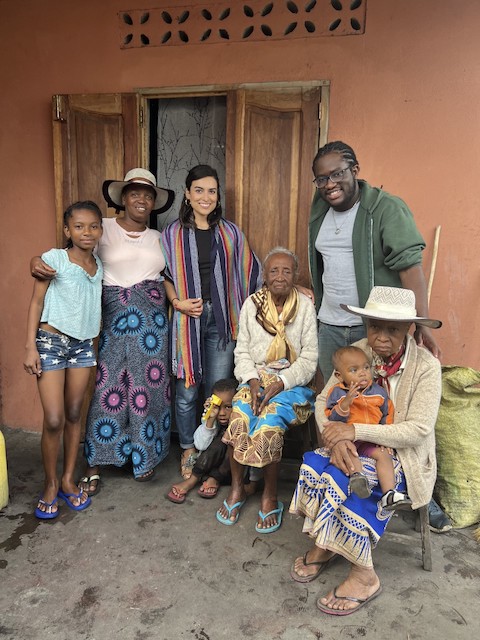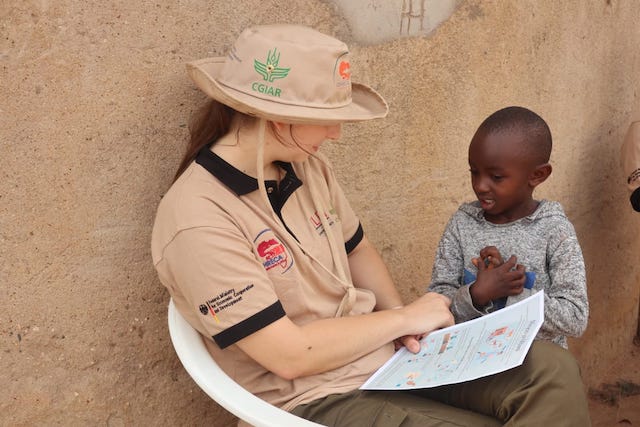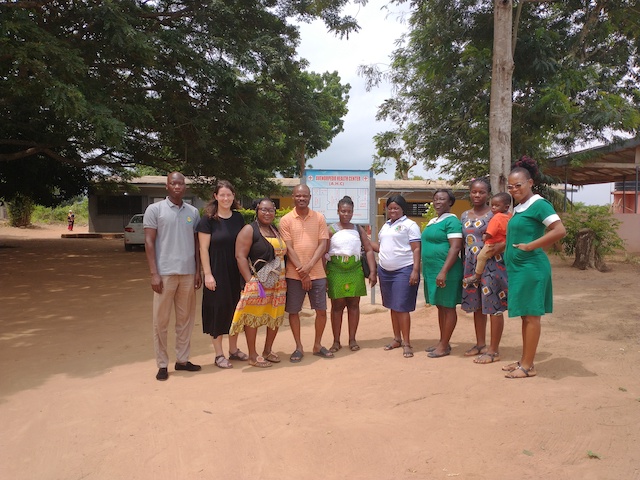COPH students go global to make a world of difference
From Asia to Australia to Africa and places in between, USF College of Public Health students practiced their passion last summer across all areas of the globe.
Some traveled as part of research grants. Others took part in international field experiences.
International Field Experience (IFE) is a practicum open to all COPH students and is mandatory for students in the global health practice concentration. It is considered an important part of the academic curriculum, serving as a structured and significant educational experience. The IFE takes place in an agency, institution or community in a developing country.
The students immersed themselves in local cultures and communities. They learned firsthand about the country’s health care system, its infrastructure and its health challenges. They worked collaboratively with other students, researchers and community leaders on a variety of public health initiatives, from how to curb rabies in a local dog population to how to make drinking water safe. Here, their stories.
Making drinking water safe in Madagascar
It was a USF flyer picturing a lemur and asking, “Would you like to help provide safe drinking water to the people of Madagascar?” that first caught MPH student Romina Beltran’s attention. After emailing one of the principal investigators of the project and getting more information, Beltran decided to apply. Out of 60 applicants, she was chosen. She worked alongside BSPH student Madison Champalou.
The project is a joint venture between the COPH and the College of Engineering, explained Dr. Mahmooda Khaliq Pasha, a COPH associate professor and one of its co-principal investigators. “It engages social marketing students with engineers to solve a public health problem [safe drinking water in Madagascar].”

Beltran’s role was to learn about the community’s knowledge, attitudes and behaviors about how to disinfect and store their drinking water.
“We wanted to know why they engage in current behavior, what steps they take to improve their water quality and what are possible interventions or suggestions for behavior change,” Beltran, who’s concentrating in public health practice, said. “With the help of our in-country partners, we were able to meet local health authorities to introduce the project, select participants, conduct a demographic survey and do participant observation. I’d say these methods were quite successful. We gained the community’s trust to open their homes to us and have us join in their activities. I can say I learned so much from my participants.”
And not all of it was academic.
“I can say that this was the most beautiful experience I’ve ever had. I fell in love with Madagascar and its people,” Beltran said. “I learned how to perform everyday tasks such as cooking, cleaning and doing laundry with limited resources. Knowing firsthand how these are performed can help us propose feasible solutions to the community. I also learned that there are so many things that connect us as humans, despite differences in culture and language. I think [interdisciplinary projects like this one] will get more people to realize that public health alone cannot address health disparities. Complex problems focusing on societal needs require multiple disciplines.”
Reducing the risk of rabies and other zoonotic diseases in Kenya
MPH student Miranda Jones spent 10 weeks last summer working with the International Livestock Research Institute (ILRI) in Machakos County, Kenya.
She collaborated with a PhD student who was working with a variety of agencies on a vaccination program for dogs. Jones went door-to-door, interacting with some 800 households, collecting and analyzing data about the prevalence of zoonotic helminths (parasitic worms) in the local dog population. She also attended local stakeholder meetings, helped conduct interviews with local health officials for a rabies documentary, visited local vaccination sites and helped organize a community health volunteer training workshop.
“The central idea of these projects was protecting human health by eliminating rabies with a One Health approach,” Jones said. “This transdisciplinary approach can mitigate zoonotic disease outbreaks, improve food safety and security, reduce antibiotic resistance and improve global security in an effective, collaborative manner. The improvement of one sector is contingent upon the interdependence and collaboration of the human, animal and environmental sectors.”

Jones said the experience gave her more than knowledge about parasites. It also gave her new perspectives.
“This field experience has thought me to be adaptable to last-minute changes, new environments and people,” Jones commented. “By working with a team of veterinarians, I was able to gain new perspectives and an understanding of disease control and prevention. Working in a developing country that has different challenges, diseases and infrastructure than the United States has allowed me to better understand the challenges people face day to day and when building a sustainable program.”
Performing data analysis in Ghana
Tracy Gates, an MPH student concentrating in global health practice, spent two months working with faculty and students from the University of Ghana’s School of Public Health developing skills in biostatistics analyses and spatial visualization, contributing to multiple manuscripts and otherwise learning the ins and outs of the health care system in Ghana.

“We performed important research advancing the understanding of predictive factors for the utilization of health facilities for deliveries in Ghana and the prevalence and distribution of hypertension across the country,” Gates explained. “We also developed multilevel predictive models that can be utilized and replicated in future predictive work.”
Gates says her IFE gave her added experience—and subsequent confidence—in assessing, analyzing, understanding and reporting quantitative data. But there were more intangible benefits as well.
“I loved being in Ghana, learning about different ways of life and perspectives along with gaining insight about the Ghanaian culture, history, food, healthcare systems and health-related challenges and resources,” Gates said. “I was able to practice adapting to an international environment with unique challenges and systems to navigate. Overall, this was an incredible experience.”
Story by Donna Campisano, USF College of Public Health
